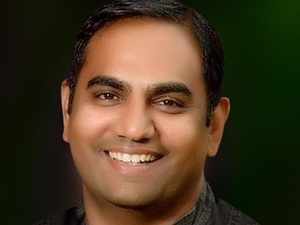

She was referred to me by a client. I started the discussion on a general note, as I did not know anything about her.
“Do you understand anything about finance,” I asked her. She smiled and told me, “I have been investing since I started working when I was 21. But honestly, I have no idea… I don’t know what I am doing is right or wrong…”
She was 30 years old at that time.
She elaborated: “I started with investing in life insurance policies like most people. In fact, almost everyone I knew was doing it. As people say, insurance toh hona hi chahiye… Then I made some investments in PPF, some in FDs, and then I have money in my bank account.”
She also told me that she had two bank accounts: a salary account and another one in which she deposits money regularly.
She offered a small bio of her as a response: I lost my father when I was 26. I have seen my mother struggling with money matters, and even my elder sister does not have much idea about money. I want to ensure that we don’t go through similar situation once again. I want to take care of my mother and want to be financially independent.
Then she narrated her problem. “Even though I have some savings here and there, as I explained, I am not confident when it comes to personal finance. Can you guide me,” she asked me.
Okay, I said. “How much money have you accumulated so far,” I asked her.
“Over Rs 32 lakh in my bank account,” she said.
I almost fell off my chair. I could not believe that someone, who is working in one of the biggest companies in India and intelligent, would simply park her money in a bank account. Her monthly take-home salary is around Rs 1.2 lakh. She wasn’t aware about inflation and how it is eroding her purchasing power, making her poor with every passing day.
She knew only one thing: she should save and should not splurge everything she earned.
Luckily, that is the first step towards financial freedom.
I advised her to review her existing investment-linked insurance policy and take a term plan. Also, she should get her mother insured separately for a medical policy. She should continue her PPF, but shouldn’t be gung-ho about it.
I also advised her the following:
1) Keep things simple
2) Keep PPF, NPS and mutual funds as the core of your portfolio
3) Keep in mind that insurance is only for risk management, and it is not an investment. Review your existing insurance policy
4) To start Rs 50,000 per month for long-term investments through SIPs, which ideally should be for 10 years plus
5) Always remember your biggest asset is time
I am happy to conclude that she was really impressed with the advice. She confessed that she had been to many personal finance sessions, but never got anything that she could use in her personal life. She was very glad that she is making a real beginning, finally.
